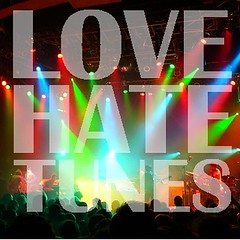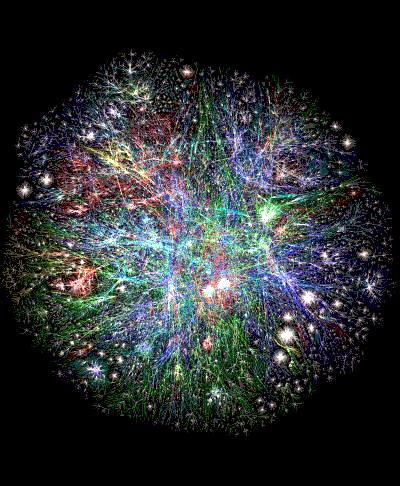The greatest thing about the advancements in web technology are that at least, for the time being, they continue. Don't get me wrong, I understand the PC is a tool that will eventually be replaced and the net, as we know it, will become radically different. Just as we went from Grammaphone to turntable to reel-to-reel to 8 track to cassette to CD to download, the PC does have a shelf life as does the this tool we call the web. But, for the time being, the learning curve is immense and expanding.
Perhaps the greatest advantages that I've found lately, however, are not necessarily discovering new websites or technologies, but new ways to use existing ones. Through integration, aggregation, and applications, web programmers are opening up vast new frontiers in web usage and viability.
As an example, I think I'm starting to "get" Twitter. And it's not that I didn't understand the technology or the concept or even the appeal that the platform had to some people. I'd figured there was a way to use the tool properly that I just hadn't figured out (and didn't even necessarily care to take the time understand). In the same way that many non-musicians listen to a jazz improv and find it confusing or self-indulgent noodling. There may even be some who love music and understand the appeal without necessarily it liking themselves. That's kind of where I felt with Twitter.
I was aware of Twitter a long time before I signed up and even longer before I really started exploring it. Going to my page at twitter.com just seemed stale to me. It seemed, for the longest time, like a weak pretender to a sole aspect of Facebook that was cool enough but not compelling. And I followed the requisite Twitterati to see them lifecasting (which I abhor) and tweeting pearls of wisdom to the adoring masses who sat around all day praying for the @reply. But, as anything on the web, one way communication isn't going to cut it and absolutely no one (I mean zilch) was following me.
I also knew that the easiest way to get followers was to ramdomly follow 10,000 people in the hopes that 1,000 follow you back. I've never been like that on MySpace or Facebook, so I certainly wasn't going to do that on Twitter. I much prefer to pursue an organic growth of followers and, at the time of writing this, I am following 117 people and have 114 followers. Of those followers I assume a certain percentage of spammers and dead profiles. I'm thinking that somewhere around the 100 mark is the stage one critical mass it took for me to find a balance between being just updates from Twitterati and more meaningful content from people that I have formed some sort of relationship with, even if it's just online. I suppose I could have reached higher numbers quicker, but I don't know that I would have cared about what anyone was saying at that point and, as such, may have lost interest altogether.
In addition to reaching this first step of discovering the benefits and relative potential of Twitter in capture my interest in more than an obligatory refresh or two every hour to see how many dozen tweets Scoble had up, the evolution of the API and its associated tools became what truly galvanized this new experience. I found Tweetdeck and, in doing so, gained a whole new appreciation from Twitter by simply being able to visualize the workings and the interactions. I started up search columns devoted to specific hastags and events. I was starting to add followers based on shared interests or, at the very least, evidence of an ability to contribute to something I cared about instead of randomly throwing darts at a print out of the fail whale.
And in learning this first step where I'm getting more out of Twitter than I thought possible, perhaps the most important thing I've learned about this, and other microblogging platforms, is that the API rules the roost. The explosive evolution of snippet commentary has all of its value in aggregation, and in aggregation the value is in the content, and in its content the value is in the users. I know enough to know that a thousand or ten thousand random follows on Twitter will not get me any of the value that 100 thoughtfully chosen contacts will.
Be it Twitter, Facebook, MySpace, Plurk, or any social network, you and your content are indistinguishable. Just as when you are not in the room, all that remains is the story of you, social networks are ALL story. The stories are told through podcasts, blog posts, references, subreferences, suggestions, advice, maxims, insights, and links. The snippets are you. How many close friends do you have in real life? How many regular friends? The interaction with one friend over one drink on one night of the week will give you more content and sources for relevant aggregation than a thousand random snippets.
I think I've started to "get" Twitter, but, even better, my hope is that I haven't even started to "really get it".




